Supply Chain Management Software
With the rising standards of logistics solutions, the margin of error limit in supply chain management is consistently diminishing. A minor mistake could cost thousands of dollars to your business, and even pave the way-up for your competitors. But no worries! Supply management software proves to be the potion in need. This solution makes it possible for users to reduce costs and errors while optimizing the complete supply chain. Here, in this article, we have talked in detail about a supply chain management software and its functionality plus benefits.
Request a Free QuoteWhat is Supply Chain Management System?
Supply chain management software is a business solution that helps in the management of the supply chain with improved efficiency. The software oversees the flow of data, goods and finances as a product or service moves from origin point to the final destination. Supply chain management activities encompass product lifecycle management(PLM), procurement, logistics, supply chain planning(SCP) and more.
A comprehensive, end to end supply chain management solution includes the software package and material handling for all the parties who operate together to create products, fulfil orders and track information consisting of suppliers, wholesalers, manufacturers, logistics providers, transportation providers and retailers. This software streamlines supply chain operations right from start to the end.
Features of Supply Chain Management Software
Shipping Management
Shipping management module provides real-time notification and alerts in all the shipping activities. Typically, large enterprises have high-volume supply chains with varied kinds of cargo shipped to consumers around the nation and even the world. Real-time updates help in determining any issues that have popped-up and prevent them from rising to a higher degree. And an additional benefit of this is, these alerts can be sent anytime and from any location with the help of device of your choice supporting this supply chain management application.
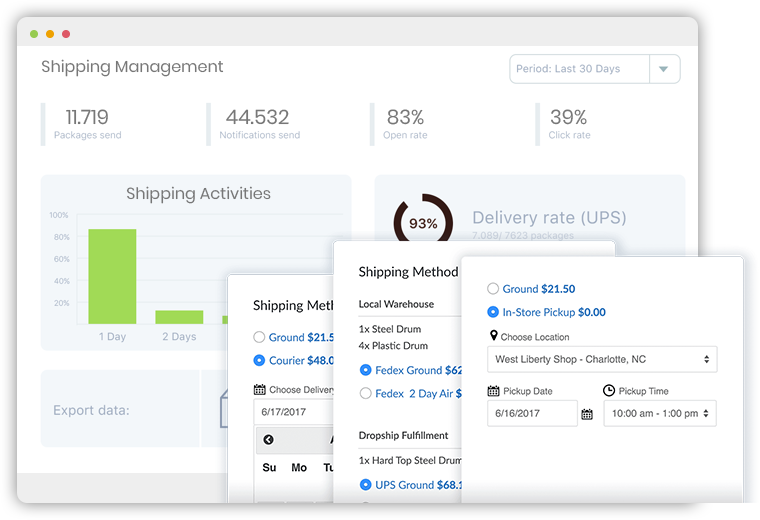
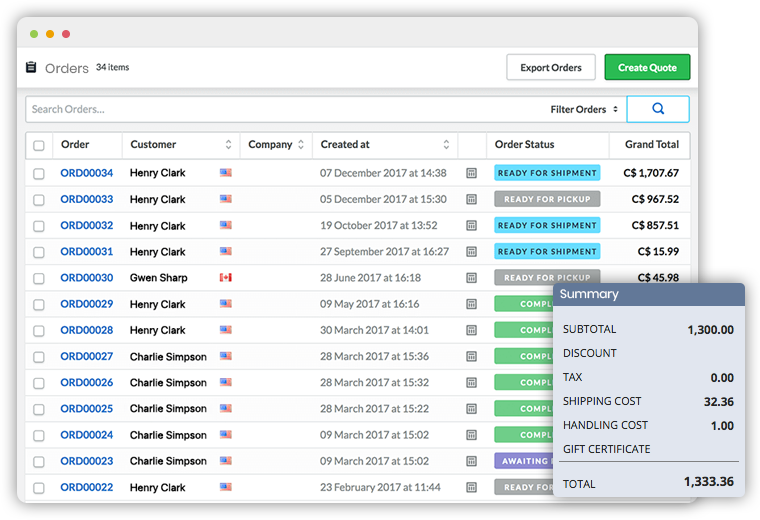
Order Processing
Order processing is again a very crucial tool of this application, utilized for making supply chain management more efficient and simplistic. This module helps in supporting all kinds of functions across order processing such as order management, sales order processing, order fulfilment and cash billing. This tool automates most of the activities involved in order processing availing EDI or similar technique for capturing data. This, in return, minimizes the time it usually takes to traditionally process an order by eliminating the need to generate and send invoices and POs manually.
Warehouse Management
A supply chain management software manages day-to-day operations within warehouses. The software provides a wide array of warehouse management capabilities as specific or broad as per your company’s requirements. The supply management solution provides an advanced planning tool which allows the user to handle complicated logistics relative to product tracking, cycle counting, route planning etc. It is also very helpful in managing the bundling and knitting process, which comes very handy in case multiple projects are kept at different warehouses.
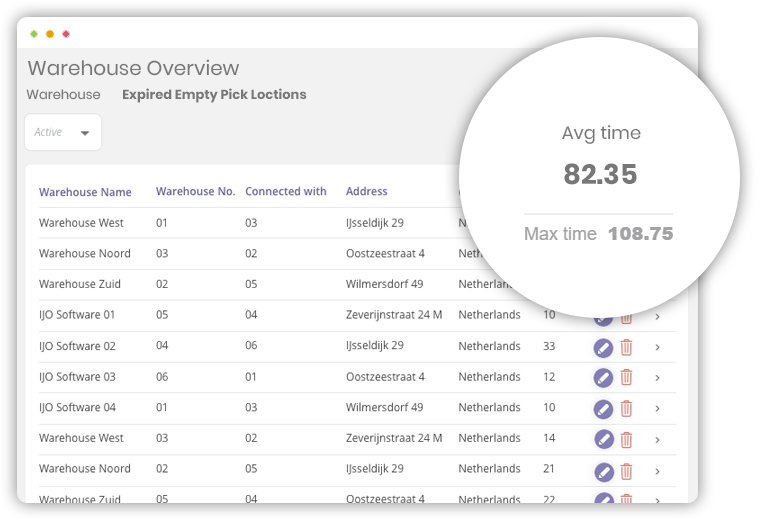
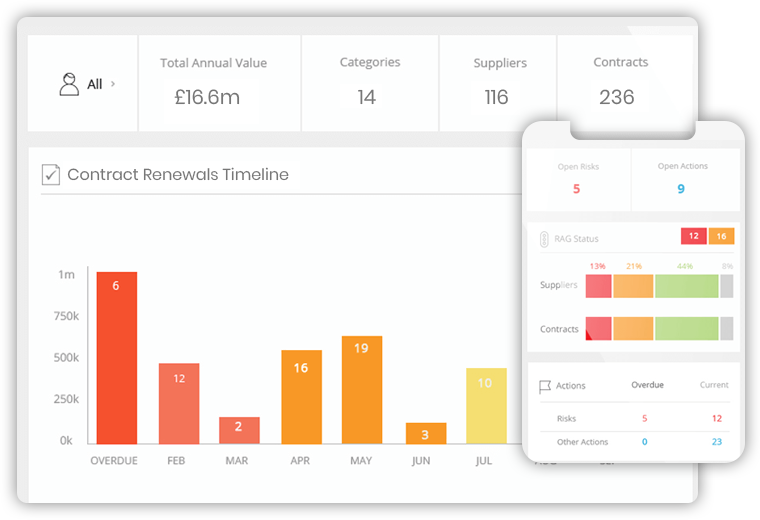
Supplier Management
Supplier management module in this application helps businesses get a better understanding of their relationship with suppliers. This tool shows the history of business partnership and its’ impact on the supply chain. With the ability to consistently evaluate your partner’s contributions, the managers can better the decision-making process. Moreover, supplier management module also gives a workspace to perform bids, negotiations and actions for more centralized procurement. Tying in firmly with spend and bid tools, a supply management module is a must-have feature of this application.
Analytics & Reports
The supply chain analytical tools provide complete visibility to users, i.e. even the performance and health of the company and not just the physical location. It gives insight into the business as a whole or individual sector. Also, the reporting module is used for conveying these analytical insights. Different reporting methods are utilized for the same, which includes dashboards, charts and much more. Though dashboards are most commonly used, owing to their ability to be configured for showing most relevant KPIs (Key performance indicators).
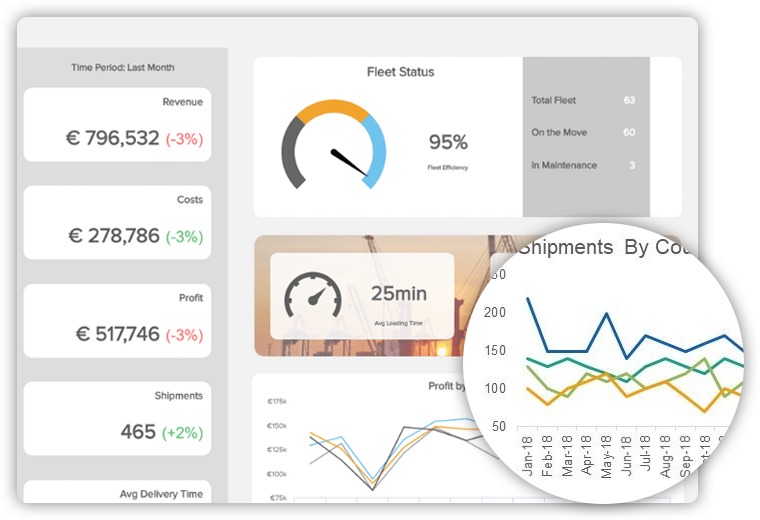
Looking for more features? That’s easy!
Contact us to build bespoke software solutions that are designed and developed keeping your custom needs in mind.
Discuss with our Experts
Engagement Models
Discover the engagement models that best suit your requirements for ERP development.

Dedicated Developers Model
Hire developers from our engineers, project managers, and QA experts to implement cost-effective, customer-specific frameworks with resource optimization.
Hire Us

Turnkey Project Model
Share your requirements and let our business analysts assist you with requirement analysis and scope freezing to ensure ERP product development within your budget.
Hire Us

Time and Material Basis Model
Build ERP solutions for your enterprise by hiring us on flexible time and material basis to make sure you have a team that adjusts to your changing requirements.
Hire Us